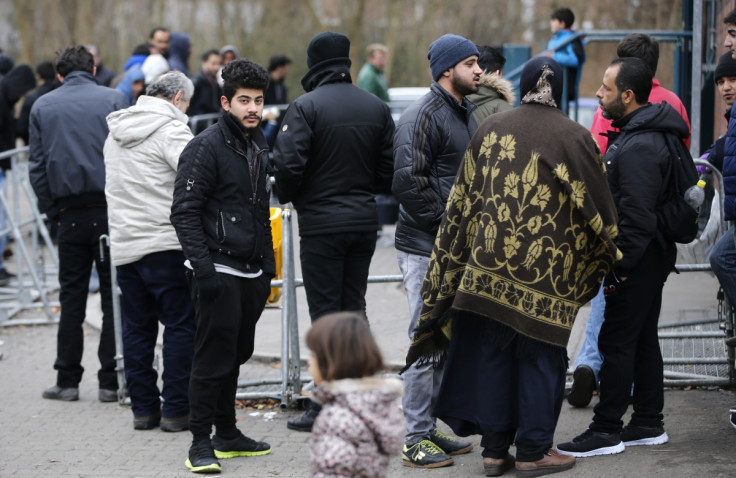Migrant crisis: 'Hand grenade' hurled at refugee home in Germany

An explosive device was hurled against a refugee home in the latest episode of anti-migrant violence in Germany, as the government moved to curtail the number of migrants entering by tightening asylum regulations. Police were hunting for suspects in the overnight incident in the south-western town of Villingen-Schwenningen.
Authorities were alerted by residents who saw a man throwing an object against an outside fence. Local media reported it was a hand grenade with the pin removed, but which didn't go off.
The premises was evacuated as a bomb squad disposed of the device. Regional police spokesman Thomas Kalmbach told AP "it was just luck" no one was injured. In recent months Germany has seen a number of xenophobic attacks amid increasing hostility towards the more than one million migrants and refugees that arrived in the past year.
On 28 January the government announced its coalition partners have agreed new plans to prolong the waiting period for refugee family reunions and to ease repatriations by designating a number of North African countries as safe.
Vice Chancellor Sigmar Gabriel said under new rules refugees who didn't face "immediate personal persecution" will have to wait two years before asking for relatives to join them. Algeria, Tunisia and Morocco are also to be deemed safe countries of origin in a move that is to speed up the legal process to send back failed applicants to those countries.
Chancellor Angela Merkel is also due discuss the European response to the migrant crisis during talks with Italian Prime Minister Matteo Renzi in Berlin on 29 January.
Renzi, who said it was "unacceptable" for Germany and France to lay out plans without involving his government, is expected to demand flexibility from the EU on Rome's finances in exchange for supporting a stalling €3bn (£2.2bn, $3.2bn) deal with Ankara to curb crossings from Turkey to Greece.
© Copyright IBTimes 2024. All rights reserved.






